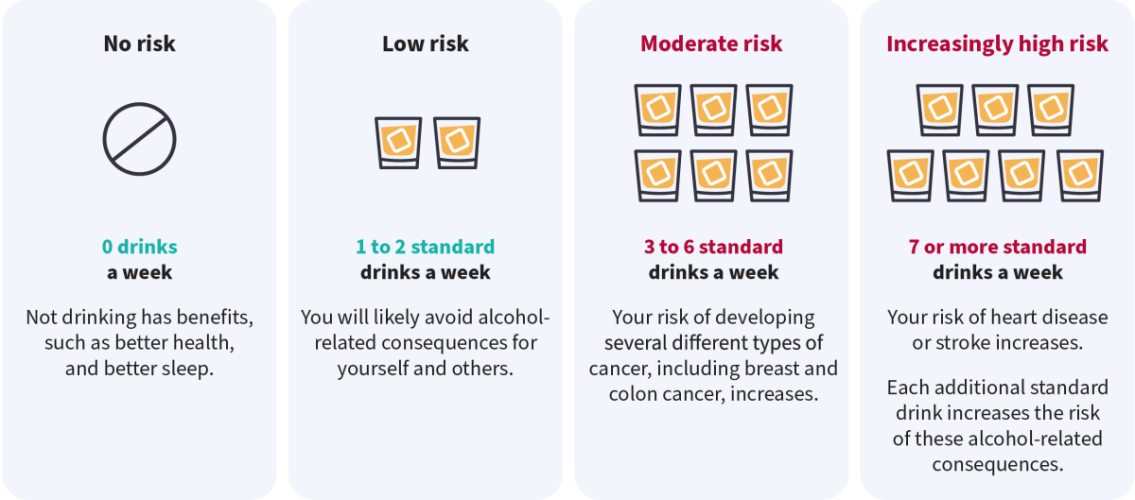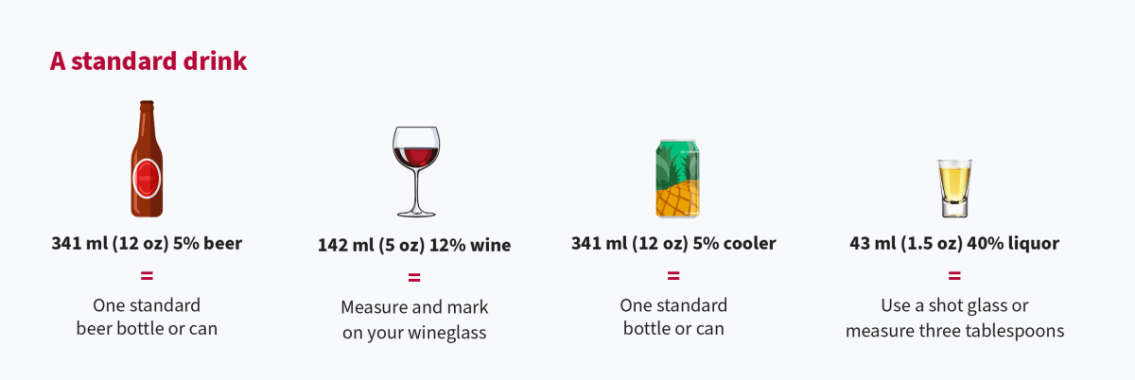Experts at the University of Ottawa Heart Institute (UOHI) are using the motto “Less is best” in discussions with patients about alcohol and heart health.
In January, The Canadian Centre on Substance Use and Addiction (CCSA) released Canada’s Guidance on Alcohol and Health, a replacement to Canada’s Low-Risk Alcohol Drinking Guidelines, which had not been updated in over a decade.
In the report are Canada’s new alcohol guidelines, which recommend consuming no more than two drinks a week for no to low risk for seven types of cancer, short-term disability and injury, heart disease and stroke.
Hassan Mir, MD, a cardiologist in the Division of Cardiac Prevention and Rehabilitation at the UOHI, said, “Any time we provide more information to enable informed decisions to improve patient care, I believe we are on the right track.”
Mir, who recently took over as chair of the Ottawa Model for Smoking Cessation, said, “There’s unfortunately a bit of a misconception about the safety of alcohol use given the fact it is so engrained in our society and culture. The potential harm of alcohol is often underestimated, just as it was 50 years ago with tobacco.”
As Mir pointed out, it is common to see labels on cigarette and nicotine product packaging that depict the harms associated with smoking. The same is not true with alcohol, despite its impact on health and social care.
It is important for patients to be informed about the potential harms of alcohol and to decide what level of risk is acceptable for them based on the most current evidence.
- Dr. Hassan Mir, UOHI
“It is important for patients to be informed about the potential harms of alcohol and to decide what level of risk is acceptable for them based on the most current evidence,” said Dr. Mir. “The updated CCSA guidelines provide a higher degree of information to enable people to decide what level of risk is acceptable for them while understanding the associated risks.”
So, what are the risks?

Dr. Mir told The Beat alcohol has considerable toxic effects resulting in preventable death, disability, and social harm. Its harms include causing several types of cancer, cardiovascular disease, liver disease, and unintentional injuries.
From the cardiovascular perspective, alcohol can increase the risk of developing cardiomyopathy, a process that weakens the heart muscle and can cause congestive heart failure. Patients with a weak heart muscle should avoid drinking alcohol as it may worsen their condition.
Mir said alcohol is also known to be a risk factor for high blood pressure and atrial fibrillation, which puts patients at higher risk of heart disease and stroke.
Regular alcohol use prior to surgery can increase the risk of postoperative complications, such as bleeding, infections, and poor wound healing post-surgery. The Heart Institute recommends patients stop consuming any alcohol four weeks before a surgery or procedure to promote a better and safer recovery.
Similarly, drinking alcohol during recovery is not advisable because it can adversely affect the effectiveness of postoperative heart medications, increase swelling, dehydrate the body, and delay or impede healing.
A standard drink: Less is best

Heart Institute Registered Dietitian Kathleen Turner said, "An important takeaway for patients is to be mindful of their alcohol intake – how often and how much they drink – and to consider drinking less."
Through her work in cardiac rehabilitation, Turner plays an integral role in developing new programs and education materials for patients at the Heart Institute.
In line with the CCSA, the Division of Cardiac Prevention and Rehabilitation at the UOHI is updating its patient education materials regarding alcohol consumption, and experts in clinical settings are educating patients about standard drink sizes and how to safely reduce alcohol consumption to remain low risk.
The bottom line: Less is best
There is a continuum of risks associated with drinking alcohol, and patients must decide what level of risk they are comfortable with, said Turner.
“Our advice to patients is to consult their family doctor or primary care provider in their community about low-risk alcohol consumption,” said Mir. “Moderation is key, but less is best.”
Become one in a million
In 2025, the Ottawa Heart Institute is launching One Million Canadian Hearts a pioneering initiative to screen one million Canadians for cardiovascular disease risk factors. Sign up to receive our newsletter with prevention tips and healthy living advice from our experts. We will also let you know when the One Million Canadian Hearts initiative comes to a neighbourhood near you!
Subscribe to our newsletter




